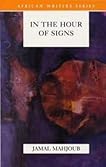As I have been immersing myself in the memoirs, fiction, films, and work of the southern Sudanese, I'm always (by necessity, by training?) trying to craft an article, an argument, for a paper. For a long time I have been stuck: sure I could do a kind of bibliographic or survey article, which might be useful, but I don't see pieces like that getting published in the journals I read. Perhaps I am just reading the wrong journals.
A more likely approach for College English or Rhetoric Review just occurred to me as a browsed the new College English special issue on Writing, Rhetoric, and Latinidad. A survey of the southern Sudanese texts (in that broad post-structuralist sense) with a focus on both the mediums and the rhetorics employed would be of some appeal (I hope) to those in my discipline. I do think the southern Sudanese (like many refugees) have resettled with the goal of telling their story, but they seem to have been more successful than most recent refugee groups in getting their story told, and using those stories for rebuilding efforts in their villages and regions.
Similar things might be going on with other groups that I am unaware of; the Congolese have "Friends of the Congo" disseminating their story in the US, and a few films and documentaries emerged in the past few years. I'm not aware of as focused an effort within the Somali community, or the Hmong community, although I know of a few books and films about each. Maybe a comparison / evaluation isn't even necessary; I could just focus on what I see being amassed by the Sudanese.
Making the time to get this written, of course, is the real challenge. Maybe I have said enough already.
 In the Hour of Signs by Jamal Mahjoub
In the Hour of Signs by Jamal Mahjoub
